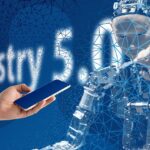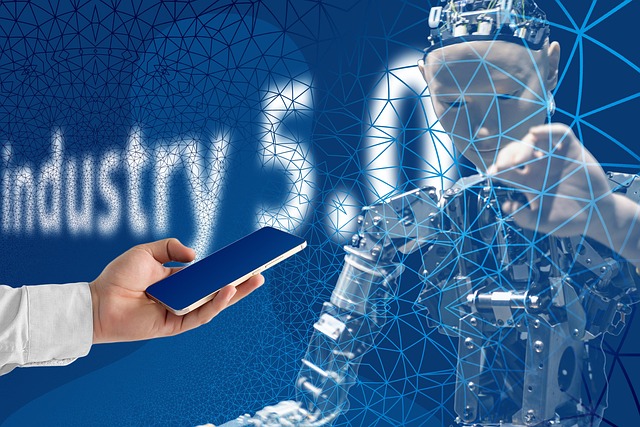# The Rise of AI Technology: Pioneering Changes in Business, Society, and Everyday Living
In recent years, artificial intelligence (AI) has transitioned from the realm of science fiction into a transformative force in our everyday lives. With its ability to analyze vast amounts of data, automate tasks, and learn from experience, AI technology has begun reshaping the landscape of various sectors. This article delves into the profound impact of AI on business operations, societal structures, and daily living.
## Transforming Business Operations
The integration of AI into business practices has revolutionized how companies operate. From automating repetitive tasks to enhancing decision-making processes, the benefits are multifaceted. For instance, AI-driven analytics tools allow businesses to glean insights from data that were previously unattainable. These insights enable organizations to make informed strategic decisions, thereby optimizing their operations and improving their bottom line.
Moreover, customer service has undergone a significant transformation due to AI technologies. Chatbots and virtual assistants, powered by natural language processing, are now capable of handling customer inquiries around the clock. This not only improves response times but also frees human employees to focus on more complex issues that require emotional intelligence and nuanced understanding. As a result, companies can enhance customer satisfaction while also reducing operational costs.
Another noteworthy aspect is the role of AI in supply chain management. Predictive analytics, driven by machine learning algorithms, can forecast demand more accurately, allowing companies to optimize inventory levels and reduce waste. This capability is particularly crucial in industries such as retail and manufacturing, where timing and efficiency can significantly impact profitability. As AI continues to evolve, it is likely that its applications in business will expand even further, leading to unprecedented levels of efficiency and innovation.
## Shaping Societal Structures
Beyond the corporate world, AI technology is influencing societal structures in profound ways. Education, healthcare, and public safety are just a few sectors experiencing significant change. In education, personalized learning platforms utilize AI to tailor educational content to individual student needs. By analyzing performance data, these platforms can identify areas where students struggle and provide targeted resources, thereby enhancing learning outcomes.
Healthcare has also seen a remarkable transformation through AI applications. Machine learning algorithms can analyze medical data to identify patterns that may elude human practitioners. For instance, AI is being used to detect diseases at earlier stages, improving prognosis and treatment options. Additionally, administrative tasks such as scheduling and billing can be automated, allowing healthcare professionals to devote more time to patient care.
Public safety is another area where AI is making strides. Predictive policing, which uses data analytics to anticipate criminal activity, has sparked debate regarding ethics and privacy. While proponents argue that it can help allocate resources more effectively, critics raise concerns about potential bias and the implications for civil liberties. As society grapples with these complex issues, it becomes clear that the integration of AI into public policy will require careful consideration and regulation to ensure equitable outcomes.
## Enhancing Everyday Living
The impact of AI extends to the everyday lives of individuals, enhancing convenience and improving quality of life. Smart home devices, powered by AI, are becoming increasingly commonplace. From voice-activated assistants that manage household tasks to smart thermostats that optimize energy usage, these technologies are designed to simplify daily routines. As a result, individuals can enjoy greater comfort and efficiency in their homes.
Furthermore, AI is revolutionizing transportation. Autonomous vehicles, once a distant dream, are now being tested on roads around the world. These vehicles promise to reduce accidents, alleviate traffic congestion, and provide mobility solutions for those unable to drive. While fully autonomous vehicles are still in development, the advancements made thus far indicate a future where transportation is safer and more accessible.
In the realm of entertainment, AI is reshaping how we consume media. Streaming platforms leverage machine learning algorithms to analyze viewing habits and recommend content tailored to individual preferences. This personalized approach not only enhances user experience but also drives engagement and retention for service providers. As AI continues to learn and adapt, the possibilities for personalized entertainment are virtually limitless.
## Conclusion: Navigating the Future of AI
As we stand on the precipice of an AI-driven future, it is essential to recognize both the opportunities and challenges that lie ahead. The rise of AI technology has the potential to enhance business operations, reshape societal structures, and improve everyday living. However, this rapid evolution also necessitates a thoughtful approach to ethical considerations, privacy concerns, and the implications for the workforce.
Collaboration between technologists, policymakers, and society at large will be crucial in navigating the complexities of AI integration. By fostering an environment that encourages innovation while safeguarding individual rights, we can harness the full potential of AI technology for the benefit of all. As we look forward to a future intertwined with AI, it is clear that the journey has only just begun, and the possibilities are boundless.











